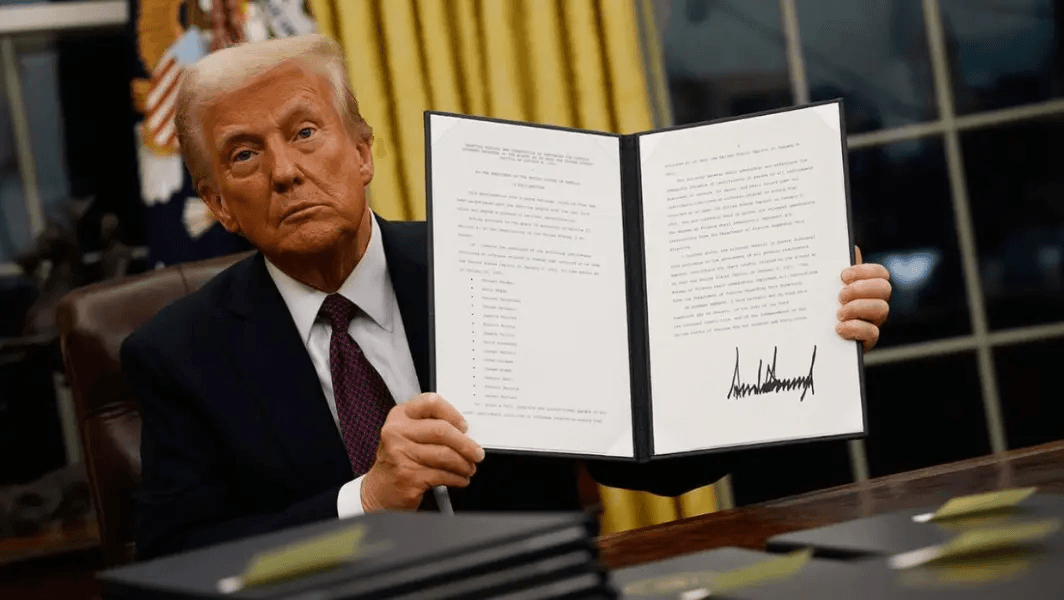
Trump Asks US Supreme Court to Intervene in Bid to Curb Birthright Citizenship
Legal Battle Over Birthright Citizenship Intensifies as Trump Seeks Supreme Court's Intervention
In a move that could potentially reshape a long-standing aspect of American immigration law, former President Donald Trump has formally requested the U.S. Supreme Court to intervene in his legal fight to curb birthright citizenship. The case centers around whether children born on U.S. soil to non-citizen parents are automatically entitled to U.S. citizenship, a right that has been guaranteed by the 14th Amendment of the U.S. Constitution.
Trump's Push to Challenge Birthright Citizenship
For years, Trump has been a vocal critic of the current interpretation of the 14th Amendment, which grants U.S. citizenship to anyone born in the country, regardless of their parents' immigration status. During his presidency, Trump attempted to end birthright citizenship through executive orders and legal challenges, arguing that the policy encourages illegal immigration.
This latest move, which asks the Supreme Court to review the issue directly, follows several failed attempts in lower courts to alter or overturn the birthright citizenship policy. Trump’s legal team argues that the U.S. Constitution does not guarantee citizenship to children of non-citizens, and that birthright citizenship should be reinterpreted or rescinded entirely.
The 14th Amendment: A Constitutional Foundation
The root of the dispute lies in the 14th Amendment, which was ratified in 1868 and is considered one of the cornerstones of American civil rights law. The amendment's Citizenship Clause states that "all persons born or naturalized in the United States, and subject to the jurisdiction thereof, are citizens of the United States and of the State wherein they reside." This clause has been interpreted over the years to guarantee birthright citizenship, making it a fundamental principle of U.S. immigration policy.
Despite this, some legal experts, including Trump’s legal team, contend that the term "subject to the jurisdiction thereof" should exclude children born to parents who are not U.S. citizens or legal residents. Critics argue that this interpretation is not only a misreading of the Constitution but also a dangerous move that could undermine long-established principles of equality and inclusion in the United States.
Previous Efforts and Legal Setbacks
Trump’s efforts to end or limit birthright citizenship began early in his presidency. In 2018, he signaled his intent to issue an executive order to end birthright citizenship, despite widespread legal consensus that such a move would require a constitutional amendment, not just an executive order.
His administration also pushed for changes to federal immigration law and advocated for stricter border control policies, all aimed at reducing illegal immigration, including birth tourism, where pregnant women travel to the U.S. to give birth and secure citizenship for their children. However, his proposals were repeatedly blocked by the courts, with judges consistently ruling that the Constitution’s text and historical interpretation did not support his claims.
In 2020, Trump’s administration also floated the idea of challenging the citizenship clause in court, but legal experts warned that it would be a long road to any significant changes, especially given the constitutional implications.
The Supreme Court's Role and Potential Impact
By asking the U.S. Supreme Court to intervene, Trump is seeking a definitive ruling on birthright citizenship from the highest court in the land. If the Court agrees to take up the case, it could result in a landmark decision that alters the interpretation of the 14th Amendment and potentially ends birthright citizenship for children of non-citizens.
Such a decision would have profound consequences on U.S. immigration policy, affecting hundreds of thousands of children born annually to non-citizen parents. It would also likely spark a new wave of legal and political battles over the future of immigration reform in the U.S.
Opposition and Legal Concerns
Legal experts and many Democratic lawmakers have strongly opposed Trump's efforts, warning that undermining birthright citizenship would violate fundamental principles of equality and could have significant consequences for both children and families. Birthright citizenship has been a cornerstone of U.S. law for over 150 years, and any move to alter it could have wide-ranging effects on the country's immigration system.
In addition, there are concerns about the impact on children born in the U.S. to undocumented immigrants who have lived in the country for many years. Critics argue that denying citizenship could lead to a new underclass of individuals without legal rights or protections, further dividing American society along racial and class lines.
What’s Next for the Case?
The U.S. Supreme Court will likely decide in the coming months whether it will take up the case. If the Court agrees to hear the case, it will consider not only the interpretation of the 14th Amendment but also the broader implications for American immigration policy. Legal observers are watching closely to see how the conservative-majority Court might approach the issue, especially given the political context and Trump’s strong support among Republican voters on immigration issues.
The Court’s eventual ruling could have lasting effects on both U.S. immigration law and the political landscape, particularly as the nation continues to grapple with issues of border security, immigration reform, and the treatment of immigrants in the country.
Conclusion
Trump’s push to have the U.S. Supreme Court intervene in his bid to curb birthright citizenship signals a new phase in the ongoing debate over immigration policy in the United States. While the 14th Amendment has long protected the rights of children born in the U.S., the legal challenges and political debates surrounding birthright citizenship are far from over. As the Supreme Court decides whether to take up the case, the nation will be watching to see how it may redefine the meaning of citizenship in the 21st century.
For any enquiries or information, contact info@thelawreporters.com or call us on +971 52 644 3004. Follow The Law Reporters on WhatsApp Channels